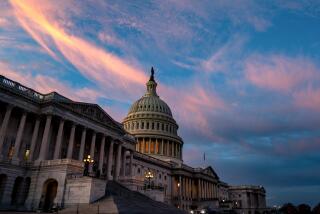Insider Probe Links Wall St. to Swiss Firm
NEW YORK — Congressional investigators have uncovered evidence suggesting that up to 30 Wall Street firms unwittingly participated in an insider trading scheme conducted via a Swiss brokerage, an industry publication says.
The Aug. 29 edition of Investment Dealers’ Digest says the House Energy and Commerce Committee’s oversight and investigations subcommittee will hold a hearing Sept. 8 and reveal the findings, which indicate that the Wall Street firms failed to detect suspicious trades coming from the Ellis A. G. brokerage.
The weekly publication said the questionable trades covered as many as 100 takeover deals from 1982 to 1985.
Under Swiss bank secrecy laws, trades executed by a Swiss banking firm through other entities, such as U.S. investment firms, don’t have to be identified. This means someone holding an account through a Swiss firm can trade through the U.S. markets without fear of detection.
Levine Testimony a Factor
The Investment Dealers Digest quoted unidentified congressional aides as saying that in some cases, large trades from A. G. Ellis were spread out over a range of Wall Street firms in order to make the transactions less obvious.
It said the repeated pattern of stock trades up to and during a takeover attempt, however, prompted congressional suspicion of insider trading, the misuse of confidential information, such as impending takeovers, to profit in the securities markets.
The subcommittee has been looking for evidence that the surveillance systems of Wall Street firms are inadequate, which some lawmakers say would justify legislation to increase firm liability in insider trading cases.
Ellis has been the focus of U.S. and Swiss law enforcement investigations for months, though no action has been brought so far and the sources behind the trades haven’t been determined.
The congressional probe was prompted partly by testimony from convicted insider trader Dennis B. Levine, who traded through Bank Leu, a Swiss bank, as a way to hide his activities.
More to Read
Inside the business of entertainment
The Wide Shot brings you news, analysis and insights on everything from streaming wars to production — and what it all means for the future.
You may occasionally receive promotional content from the Los Angeles Times.










